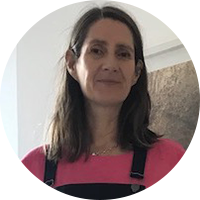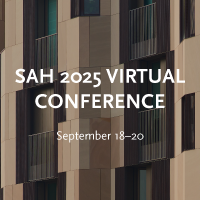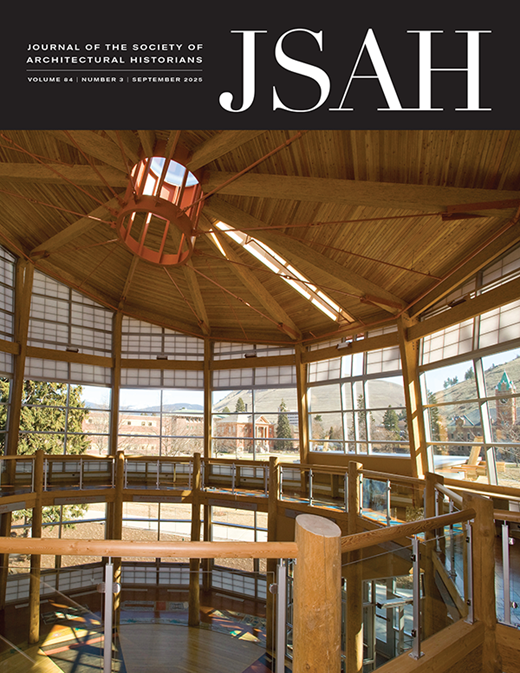-
Membership
Membership
Anyone with an interest in the history of the built environment is welcome to join the Society of Architectural Historians -
Conferences
Conferences
SAH Annual International Conferences bring members together for scholarly exchange and networking -
Publications
Publications
Through print and digital publications, SAH documents the history of the built environment and disseminates scholarship -
Programs
Programs
SAH promotes meaningful engagement with the history of the built environment through its programs -
Jobs & Opportunities
Jobs & Opportunities
SAH provides resources, fellowships, and grants to help further your career and professional life -
Support
Support
We invite you to support the educational mission of SAH by making a gift, becoming a member, or volunteering -
About
About
SAH promotes the study, interpretation, and conservation of the built environment worldwide for the benefit of all
How does domestic caregiving impact scholarly questions, orientations, and methods? What does scholarly caregiving look like? What shape does intellectual society take as it inhabits the domestic spaces of care in a pandemic? These questions animate this workshop, which brings forward theories emerging in the process of profound domestic caregiving by scholars whose architectural historical work has been enriched by their empathy and entanglement with the care of others.
We enfold a range of themes into three panels, each with brief provocations by participants followed by a discussant’s response and moderated dialogue with audience members. We begin by asking how caregiving intersects with social constructs of identity, and how these constructs shape our research questions, understandings of evidence, approaches to authorship, and the format and language of research products. We examine the visibility and invisibility of labor in history writing, considering how to develop an ethos of mentorship and collaboration in order to make intellectual production more horizontal—indeed, how to build networks and entanglement with others in our work. We turn to interrogations specific to the pandemic and an imagined post-pandemic world, thinking about how caregiving during this time has impacted or changed our scholarship and the historical understanding of our topics and subjects of interest, for example, articulating which voices we now give space to and why. Methodologically, we identify to what extent caregiving in our scholarship is a biographical enterprise and to what extent it concerns other (scholarly) subjects. We attempt to theorize how methodologies that have emerged in our own particularistic experiences sit in relation to other pressing issues in architecture or architectural history. Each panel is driven by the query of what “Caregiving as Method” as a specific intertwining would or could make possible, and what concrete or affective outcomes might be meaningful for participants and audience members during and after the session. Participants and respondents will discuss the ways in which intertwined forms of domestic and scholarly caregiving extend futurities as well as historical understanding, and have the potential to shift the values and terms of scholarly life.
This workshop includes the confirmed participants and respondents listed below, and audience members are invited to share their perspectives after each panel and in an open discussion at the end. The workshop is intended to support careers driven by forces other than generally recognized forms of achievement, while also examining the fine grain of collaboration and care that inform scholarship. It aims to drive cultural change in our discipline and support academics living under various signs of difference, who are caregiving within a variety of modes of kinship. At the same time, it makes space to consider how scholarly and domestic caregiving together find a way to extend into social worlds that restrict or oppress. We are interested in profound domestic caregiving in contexts in which it is seen as normative and others in which it is seen as non-normative. Some of the settings we are attentive to include BIPOC parents nursing or homeschooling in a pandemic, immigrants caring for elders at home or elsewhere, queer and trans communities producing care structures within or outside national law, and scholars subjugating individual interest to mutual aid.
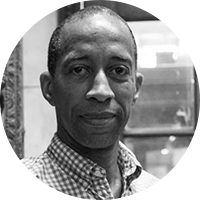
MODERATOR | Garnette Cadogan is the Tunney Lee Distinguished Lecturer in Urbanism at the School of Architecture and Planning at the Massachusetts Institute of Technology. Named by the literary magazine Freeman’s as one of 29 writers from around the world who "represent the future of new writing” in 2017, he writes about culture and the arts for various publications. He was a Martin Luther King Jr. Visiting Scholar (2017–2018) at DUSP, and is a Visiting Scholar at the Institute for Public Knowledge at New York University and a Fellow at the Institute for Advanced Studies in Culture at the University of Virginia. The editor-at-large of Non-Stop Metropolis: A New York City Atlas (co-edited by Rebecca Solnit and Joshua Jelly-Schapiro), he is at work on a book on walking.
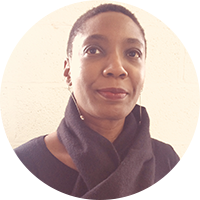
SPEAKER | Itohan Osayimwese is Associate Professor of the History of Art & Architecture and affiliate faculty in Africana Studies, Urban Studies, and the Center for Latin American and Caribbean Studies at Brown University. Her research engages with theories of modernity, postcolonialism, and globalization to analyze built and designed environments in nineteenth and twentieth-century East and West Africa, the Anglo-Caribbean, and Germany. Her book, Colonialism and Modern Architecture in Germany (Pittsburgh, 2017), received a 2016 SAH/Mellon Author Award. Her work has been published in the Journal of Architecture, African Arts, Architectural Theory Review, and Traditional Dwellings and Settlements Review. Her current book projects explore migration and the acquisition of property as the realization of freedom for Afro-Caribbean people, and translation as a critical source in the historiography of African architecture. She serves on the board of directors of the European Architectural History Network and Thresholds journal, and is founding co-chair of the Society of Architectural Historians Minority Scholars Affiliate Group.

SPEAKER | Kush Patel (they/he) is a faculty member in the Postgraduate Arts Program in Technology and Change at the Srishti Manipal Institute of Art, Design, and Technology in Bangalore, India. Their research and teaching remain oriented to the theme of “survival” as both a form and method of historical and theoretical investigations into making just environments across a range of digital and community sites. Current projects include a history of participatory architecture and examinations of pedagogical and archival forms that campus-community projects in and with the digital take to engage struggles against heteronormative and casteist patriarchy. They are also the co-founder of “Pedagogy of the Digitally Oppressed,” a digital humanities collective that is committed to fostering queer, feminist, and anti-colonial approaches to digital humanities teaching. Their writing appears in Digital Studies / Le champ numérique, Knowledge Justice: Disrupting Library and Information Science through Critical Race Theory, Public: A Journal of Imagining America, and more.

SPEAKER | Anooradha Iyer Siddiqi (she/her) is an assistant professor at Barnard College, Columbia University, and specializes in histories of architecture and spatial practice centering African and South Asian questions. Her book, Architecture of Migration: The Dadaab Refugee Camps and Humanitarian Settlement (forthcoming from Duke University Press), analyzes the history, spatial politics, visual rhetoric, and iconographies of the Dadaab refugee camps in Northeastern Kenya, as an epistemological vantage point in African and Islamic worlds. Her book manuscript, Minnette de Silva and a Modern Architecture of the Past, engages the intellectual and heritage work of an important cultural figure in the history of Ceylon/Sri Lanka, one of the first women in the world to establish a professional architectural practice. Siddiqi directs the Columbia University Center for the Study of Social Difference working group, Insurgent Domesticities. She serves on the SAH Board and the SAH IDEAS Committee.
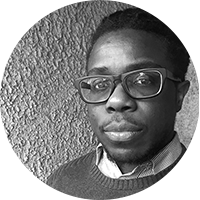
SPEAKER | Jay Cephas is Assistant Professor in the History and Theory of Architecture at Princeton University, conducting research that explores the relationships between labor, technology, and identity in the built environment. Jay was recently awarded a Graham Foundation grant to support the Black Architects Archive, a repository of under-represented architects from across 200 years of history, and previously served as a 2019 W.E.B. Du Bois Fellow at the University of Massachusetts Amherst.

SPEAKER | Lilian Chee is Associate Professor at the Department of Architecture, National University of Singapore, where she co-leads the Research by Design Cluster. Her research connects embodied experience and affective evidence with architectural representation and feminist politics. Her award-winning film collaboration, 03-FLATS(2014), has screened in 16 major cities. She is on the editorial boards of Architectural Theory Review, AustralianFeminist Studies, the idea journal and advisor for the Bloomsbury Architecture Library. Her current book projects are Architecture and Affect (Routledge) and Remote Practices: Architecture at a Distance (Lund Humphries). She is co-directing a series of short films, Objects for Thriving (2021), which explore objects, domestic spaces, structures of feeling, and the elderly. She was Visiting Fellow at Future Cities Lab Singapore-ETH Centre (2018) and Honorary Senior Research Associate at Bartlett UCL (2018–2019). Her forthcoming research explores the intersection of home-based work practices with domesticity through an affective-feminist perspective.
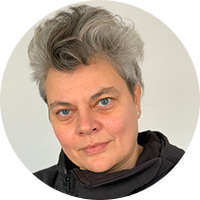
MODERATOR | Ana Miljački is a critic, curator and Professor of Architecture at MIT, where she teaches history, theory and design. She co-curated the US Pavilion at the 2014 Venice Architecture Biennale with Eva Franch i Gilabert and Ashley Schafer. In 2018 Miljački launched the Critical Broadcasting Lab at MIT, engaged in critical curatorial and broadcasting work, including an ongoing radio show titled "Conversations on Care." Miljački is the author of The Optimum Imperative: Czech Architecture for the Socialist Lifestyle 1938–1968 (Routledge, 2017), co-editor of the OfficeUS series of books, guest editor of Praxis 14: True Stories, the editor of Terms of Appropriation: Modern and Architecture and Global Exchange with Amanda Reeser Lawrence (Routledge, 2018), as well as of The Under the Influence symposium proceedings (Actar, 2019).
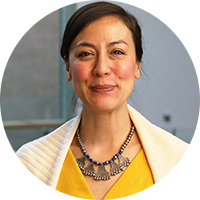
SPEAKER | Delia Duong Ba Wendel is Assistant Professor of Urban Studies and International Development at MIT. Her research explores forms of community repair and the afterlives of violence. Delia approaches this work from an interdisciplinary perspective that draws together architectural history, cultural geography, anthropology, and urban studies. Current research is located in Rwanda and informs two book manuscripts in progress. Rwanda’s Genocide Heritage is an intimate history of early genocide memory curation that traces relationships to nascent human rights practice in the Global South. The book received a grant from the Graham Foundation and is forthcoming with Duke University Press. Delia’s second book, The Ethics of Stability, explores post-genocide peacebuilding as a socio-spatial endeavor; one that is defined and challenged in the design of homes, settlements, and civic space. Delia is also co-editor, with Fallon Aidoo, of Spatializing Politics and curator of "A Memory Atlas for Repair," an exhibition funded by MIT and The Mellon Foundation.

MODERATOR | Can Bilsel is Professor at the University of San Diego where he served as Chair of the Department of Art, Architecture and Art History, and the founding director of the Architecture Program. He holds a PhD from Princeton University, SMArchS from MIT, and a BArch from METU in Ankara, Turkey. Bilsel has written and lectured on modern architecture and archaeology museums, and on the changing political contexts and audiences of architectural conservation. His publications include Antiquity on Display: Regimes of the Authentic in Berlin’s Pergamon Museum (Oxford, 2012), “Crisis in Conservation: Istanbul’s Gezi Park Between Restoration and Resistance” (2017), and “Our Anatolia: Organicism and the Making of the Humanist Culture in Turkey,” (2007). Bilsel is co-editor, with Juliana Maxim, of the book Architecture and the Housing Question (Routledge, 2022) and is currently working on a series of essays on urban protests, resistance, and memorialization.
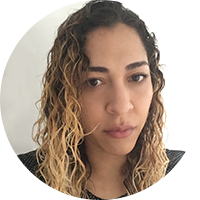
SPEAKER | Elis Mendoza is a PhD candidate in the History and Theory of Architecture at Princeton University. Elis works at the intersection between built space, politics, and human rights with a special focus in historical complex-emergencies. Her research traces histories of architecture experimentation within the incipient humanitarian government of the 1970s.
Elis also works closely with communities at the center of human rights violations to create new legal narratives around events that visibilize systemic oppression. She has worked in Mexico and Guatemala as a forensic architecture expert and presented her work at the Guatemalan Supreme Court in the Sepur Zarco trial in 2016.
Her work has received support from the Paul Mellon Centre, the Program for Latin American Studies at Princeton, the Open Society, the Mexican National Council for Science and Technology, and UN Women, and has been published in Avery Review, Art Papers, The Funambulist, and Dc Papers, among others.
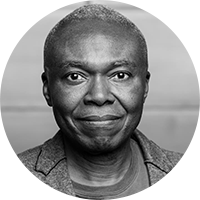
SPEAKER | Ikem Stanley Okoye is Associate Professor in the Department of Art History at the University of Delaware, and is joint faculty in the Africana Department. Currently a Canadian Centre for Architecture/Mellon Researcher on the “Centring Africa” initiative, his writing project there is Where was Modernism. He has also held fellowships at the Institute for Advanced Study, Princeton; the Center for Modern Oriental Studies, Berlin; and the Advanced Study Center at Michigan, among others. His essays on art, architecture, and the landscape are published in journals including Interventions: Journal of Postcolonial Studies; Journal of the Society of Architectural Historians; Critical Interventions, and NKA; and in book anthologies including Radical Pedagogies and Cultural Heritage Landscapes in Sub Saharan Africa. His work sometimes focuses on early colonial Nigeria, as is so for the long in-process book Hideous Architecture. Okoye occasionally enjoys a practice in architecture as “Ikem Okoye + Anubis Architecture”.
